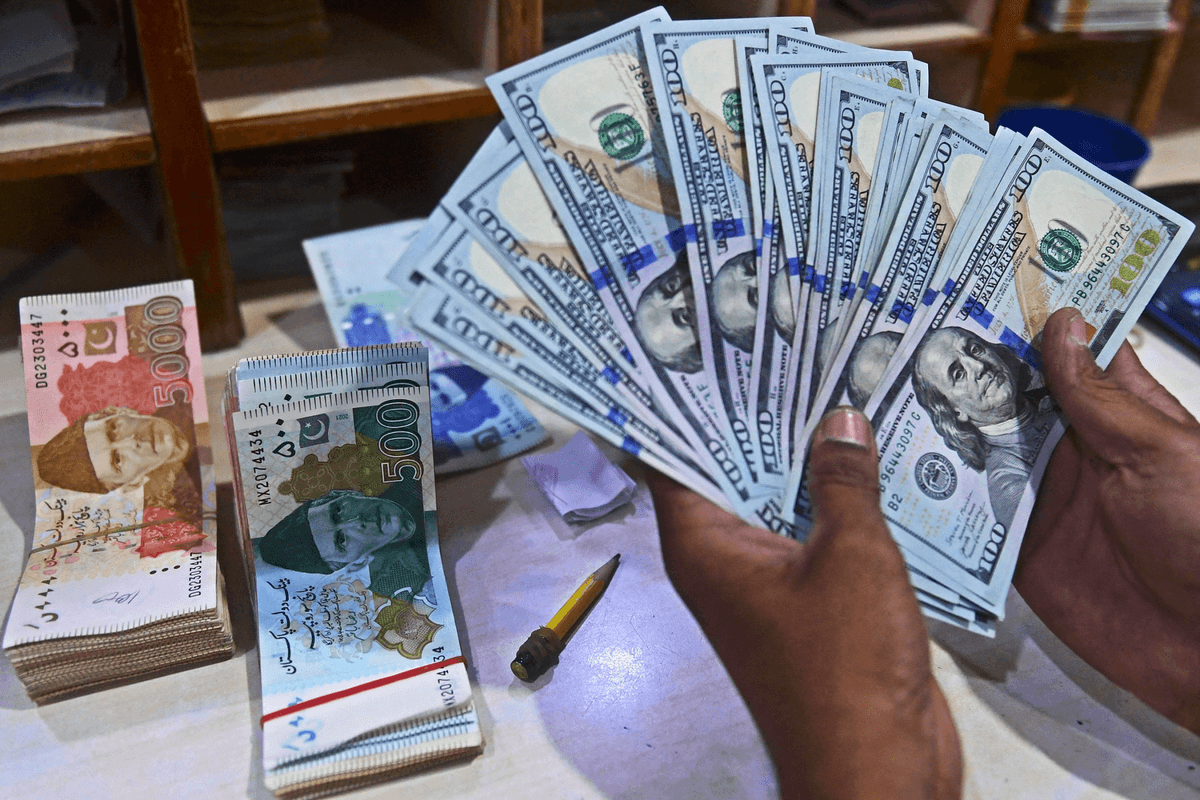Pakistan’s total debt increased to PKR 76.6 trillion in Sept
Total central govt liabilities show rare month-on-month decline as the government slows down lending, increases repayment
Business Desk
The Business Desk tracks economic trends, market movements, and business developments, offering analysis of both local and global financial news.

External debt stayed stable, with short-term foreign liabilities around PKR 379 billion.
Reuters/File
Pakistan’s total central government debt climbed to PKR 76.6 trillion in September, a 10% increase from a year earlier, according to new data released by the State Bank of Pakistan.
The data shows domestic debt rose 12% year-on-year to PKR 53.4 trillion, while external debt increased 5% to PKR 23.2 trillion. Despite the annual rise, both categories declined 1% from August, reflecting limited new borrowing and some repayments during the month.
According to Topline Research, long-term borrowing in domestic debt surged 24% from last year to reach PKR 44.96 trillion. Short-term debt, however, fell sharply — down 25% to PKR 8.4 trillion.
The Naya Pakistan Certificates component, a key source of inflows from overseas Pakistanis, dropped 26% year-on-year, indicating a weaker appetite from expatriate investors.
Government officials say the month-on-month decline marks a rare slowdown in borrowing, driven by fiscal discipline measures, stronger revenue collection, and a cautious stance toward fresh domestic financing. Authorities have also accelerated repayments to both the SBP and commercial banks to reduce refinancing pressures.
External debt remained broadly stable, supported by minimal new disbursements and exchange-rate adjustments. Short-term foreign-currency liabilities were little changed, with the outstanding amount at roughly PKR 379 billion.
Despite the modest improvement, analysts warn that Pakistan’s debt load remains a major challenge.
“The headline numbers show a positive short-term trend, but the overall debt burden is still very high relative to GDP,” said a Karachi-based macroeconomic analyst.
“Without sustained fiscal consolidation and a significant boost in tax revenues, long-term debt sustainability will remain uncertain.”
Economists expect the government’s upcoming budget and progress on structural reforms to determine whether the slowdown in borrowing can be sustained through the remainder of the fiscal year.







Comments
See what people are discussing